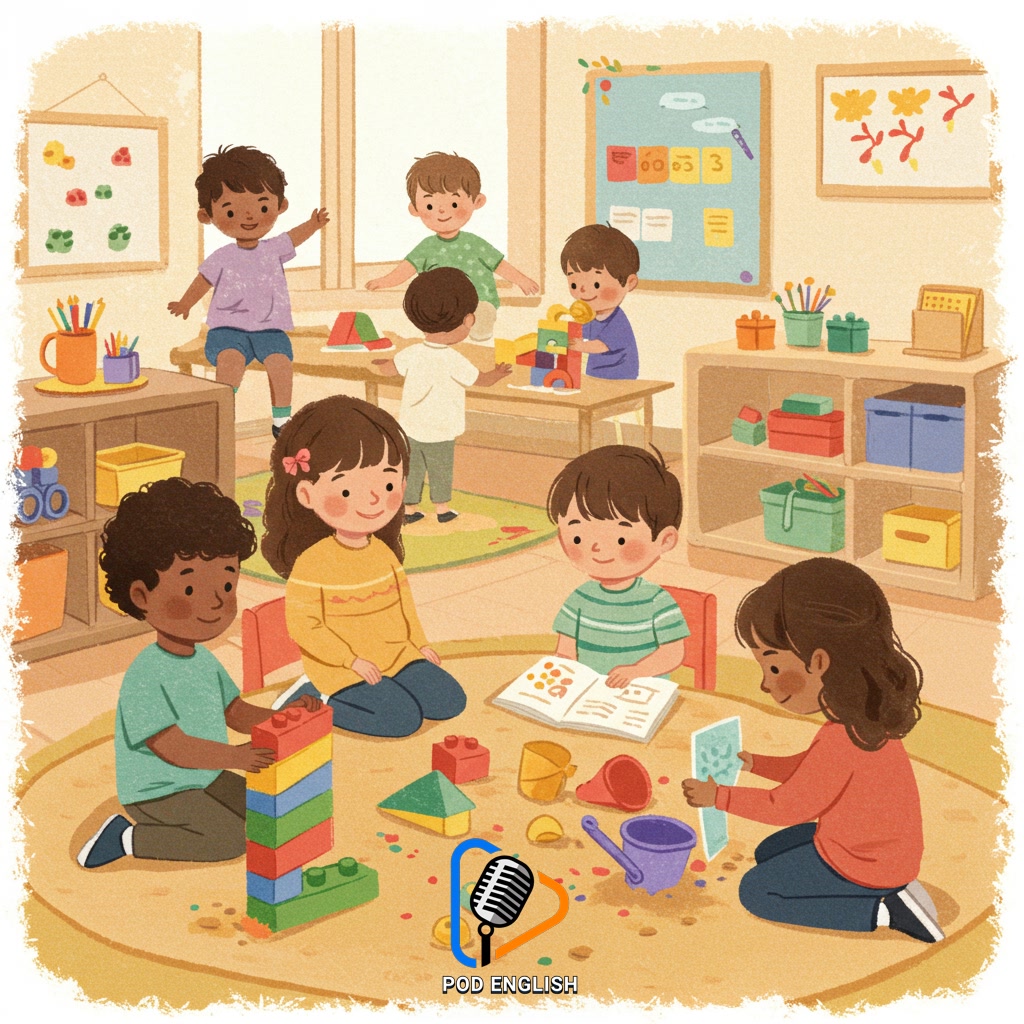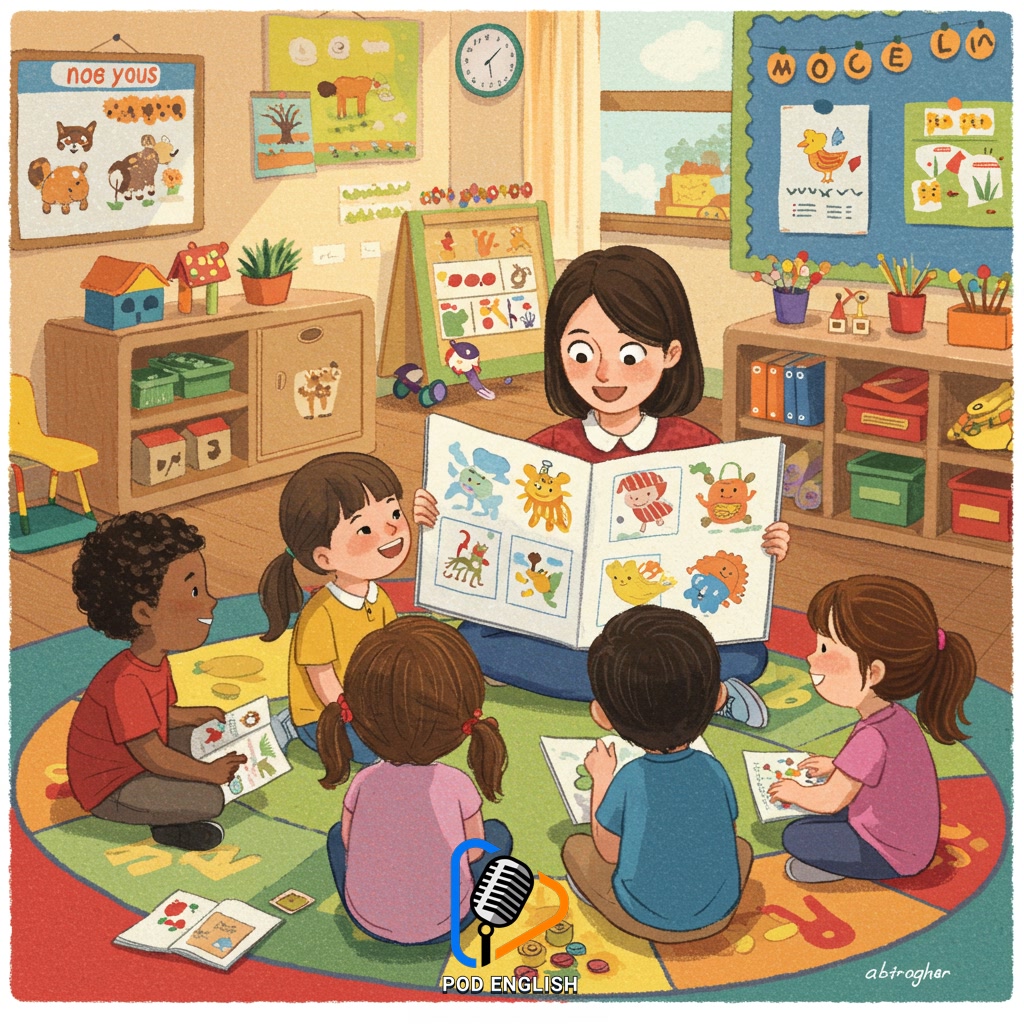Learn English
Early Education: Shaping Future Success and English Fluency

Early education establishes the critical foundation for a child’s future accomplishments. It cultivates essential cognitive and social competencies vital for overall growth. Crucially, this initial phase offers an optimal environment for acquiring new languages, including English. Early exposure to learning English can significantly boost communication skills and expand future prospects. Therefore, prioritizing early education is fundamental for nurturing both broad success and English language proficiency.
Table of Contents
- Section 1: The Foundational Importance of Early Education
- Section 2: How Early Learning Environments Shape Future Success
- Section 3: Introducing Learning English in Early Childhood
- Section 4: Accelerating English Fluency Through Early Exposure
- Section 5: Effective Strategies for Teaching English to Young Learners
- Section 6: Connecting Early Education, English Proficiency, and Global Opportunities
Section 1: The Foundational Importance of Early Education
Early education serves as the essential starting point for a child’s entire learning path. It’s like building the fundamental base upon which all future knowledge and skills will rest. The years spent in preschool and kindergarten are particularly critical because a child’s brain is developing rapidly, making it an ideal time to absorb new information and build key abilities. In this foundational period, children acquire crucial cognitive skills, such as thinking, solving simple problems, and remembering. Equally important is the development of social and emotional competencies, like learning to share, cooperate with others, and manage their feelings. These early skills are not just steps towards academic readiness; they are the building blocks for overall personal growth and future success in various aspects of life.

Section 2: How Early Learning Environments Shape Future Success
Early learning environments are not merely physical spaces; they are dynamic ecosystems carefully designed to nurture young minds and spirits. A stimulating environment rich with diverse materials and opportunities for play-based learning encourages curiosity, problem-solving, and creative thinking. Positive interactions with responsive educators and peers cultivate essential social-emotional skills, fostering empathy, cooperation, and self-regulation. These settings provide the structured yet flexible framework where foundational cognitive abilities, including early literacy and numeracy, are built. Crucially, a language-rich environment, often incorporating exposure to new languages like English through songs, stories, and interactive play, significantly enhances communication skills and confidence. By providing this blend of intellectual stimulation, social support, and language development, early learning environments effectively lay the critical groundwork for children to achieve broader success in their future academic and personal lives.

Section 3: Introducing Learning English in Early Childhood
Building upon the foundation of a stimulating early learning environment, this phase presents a unique opportunity to introduce children to the English language. Young children possess an incredible capacity for language acquisition, absorbing sounds, rhythms, and vocabulary through natural exposure and playful interaction. Integrating English into daily activities – through songs, stories, simple games, and visual aids – allows children to begin building familiarity and comfort with the language without pressure. This early, gentle introduction fosters curiosity and lays the groundwork for future language development, making the process feel like an exciting part of their exploration and discovery within their rich learning space.

Section 4: Accelerating English Fluency Through Early Exposure
Building upon the foundation of a stimulating early learning environment, this phase presents a unique opportunity to introduce children to the English language. Young children possess an incredible capacity for language acquisition, absorbing new sounds, words, and structures naturally through playful interaction and repetition. Early exposure to English leverages this innate ability, allowing them to develop pronunciation and fluency more easily than at later stages. Engaging activities like songs, games, and simple storytelling create a fun and immersive experience, making the learning process enjoyable and highly effective. This early start not only accelerates language acquisition but also builds confidence and a positive attitude towards learning English, establishing a strong base for future linguistic development.

Section 5: Effective Strategies for Teaching English to Young Learners
Building upon the foundation of a stimulating early learning environment, this phase presents a unique opportunity to introduce children to the English language. Young children possess an incredible capacity for language acquisition, and employing effective strategies is key to harnessing this potential. Engaging methods such as interactive games, catchy songs, and vibrant picture books make learning English fun and memorable. Repetition and consistent exposure to simple vocabulary and phrases in playful contexts are crucial. Teachers can utilize visual aids, role-playing, and hands-on activities to make abstract concepts tangible. Creating a supportive and encouraging atmosphere where mistakes are seen as part of the learning process helps build confidence. Focusing on listening and speaking first, before introducing reading and writing, aligns with natural language development. These strategies not only facilitate language learning but also foster cognitive development and positive attitudes towards communication.

Section 6: Connecting Early Education, English Proficiency, and Global Opportunities
Building upon the foundation of a stimulating early learning environment, this phase presents a unique opportunity to introduce children to the English language. Young children possess an incredible capacity for language acquisition, absorbing new sounds and structures naturally. By integrating English into early education through playful activities, songs, and stories, we not only enhance their linguistic skills but also broaden their understanding of the world. This early exposure connects them to a global language, unlocking future opportunities for communication, accessing diverse knowledge, and engaging with people from different cultures, ultimately preparing them for success in an increasingly interconnected world.














